![]() 19 Jul 2024
19 Jul 2024
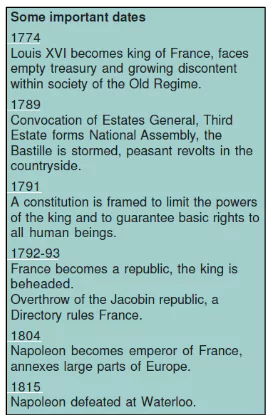
Louis XVI, needing to raise taxes, could not impose them at will. Instead, he required approval from the Estates General, a political assembly representing the three estates. The last meeting before 1789, was in 1614.
Meeting of the Estates General in 1789: On 5 May 1789, Louis XVI convened Estates General to propose new taxes.
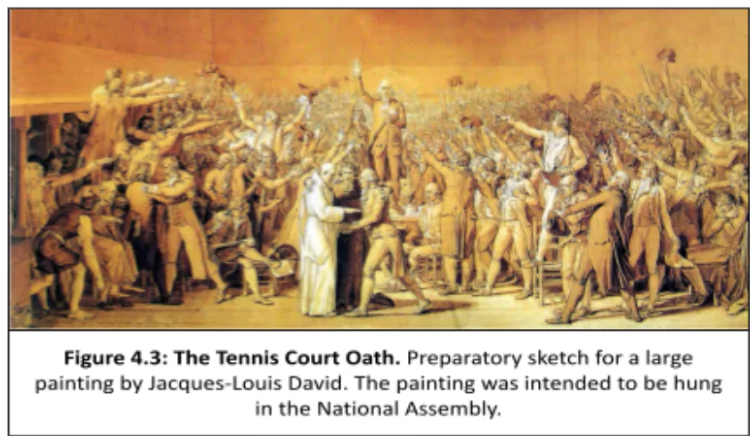 Formation of the National Assembly: On 20 June 1789, third estate gathered at an indoor tennis court. (Refer to figure 4.3)
Formation of the National Assembly: On 20 June 1789, third estate gathered at an indoor tennis court. (Refer to figure 4.3) When the National Assembly deliberated, France was in chaos. Following were the factors included:
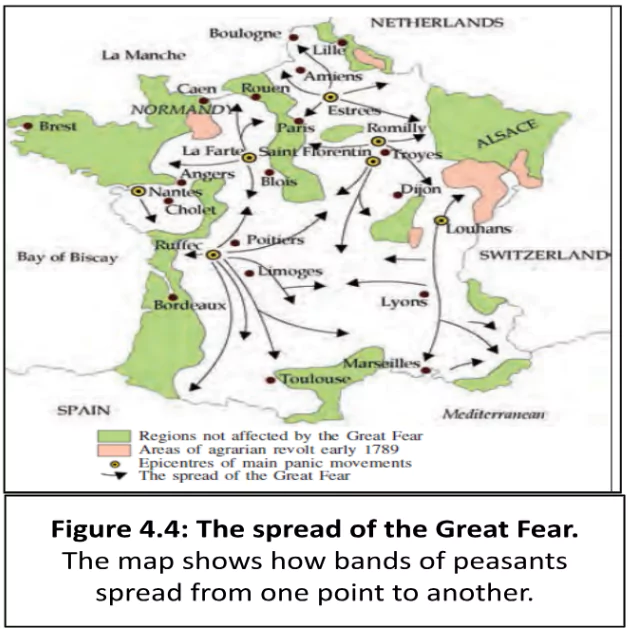 Destruction of Bastille: Louis XVI positioned troops in Paris, which culminated in the destruction of the Bastille on 14 July.
Destruction of Bastille: Louis XVI positioned troops in Paris, which culminated in the destruction of the Bastille on 14 July.Recognition of National Assembly: Louis XVI, seeing his subjects’ revolt, recognized the National Assembly and agreed that his power would be constitutionally restrained. (Refer to Figure 4.4)
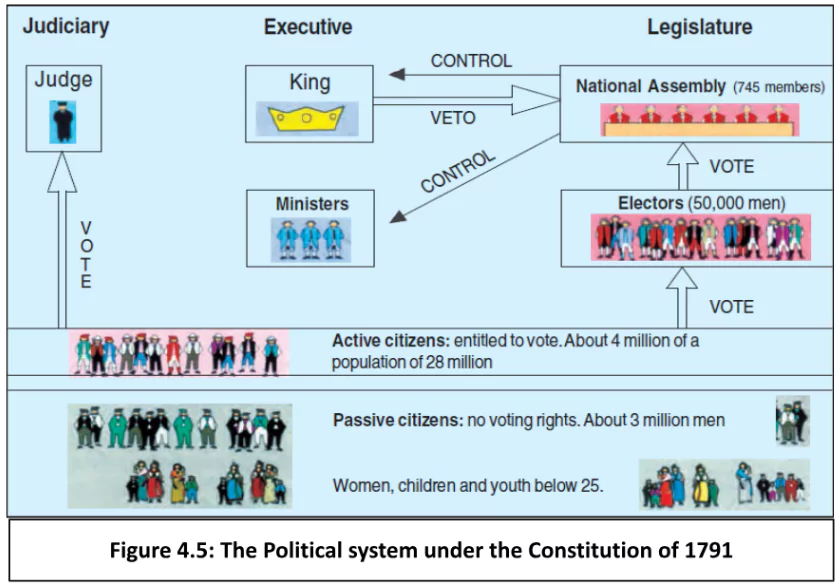
Transformation to a Constitutional Monarchy: Constitution’s primary goal was to decentralize power from monarch to various institutions i.e. legislature, executive, and judiciary.
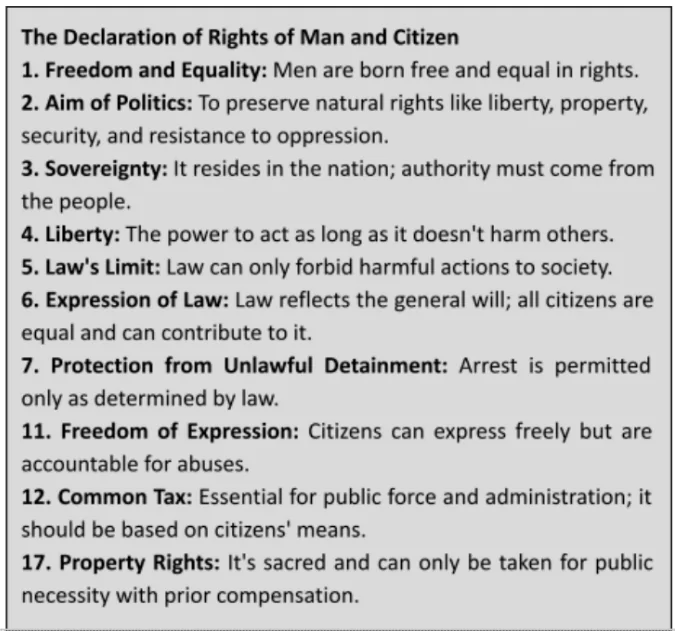 Passive Citizens: Men did not meet these criteria, and all women were deemed “passive citizens” and lacked voting rights.
Passive Citizens: Men did not meet these criteria, and all women were deemed “passive citizens” and lacked voting rights.
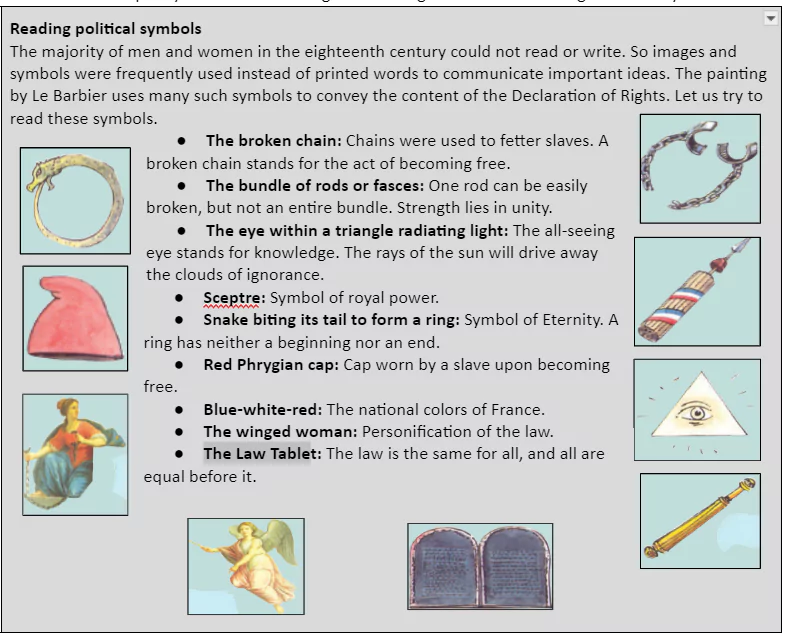
| Must Read | |
| Current Affairs | Editorial Analysis |
| Upsc Notes | Upsc Blogs |
| NCERT Notes | Free Main Answer Writing |
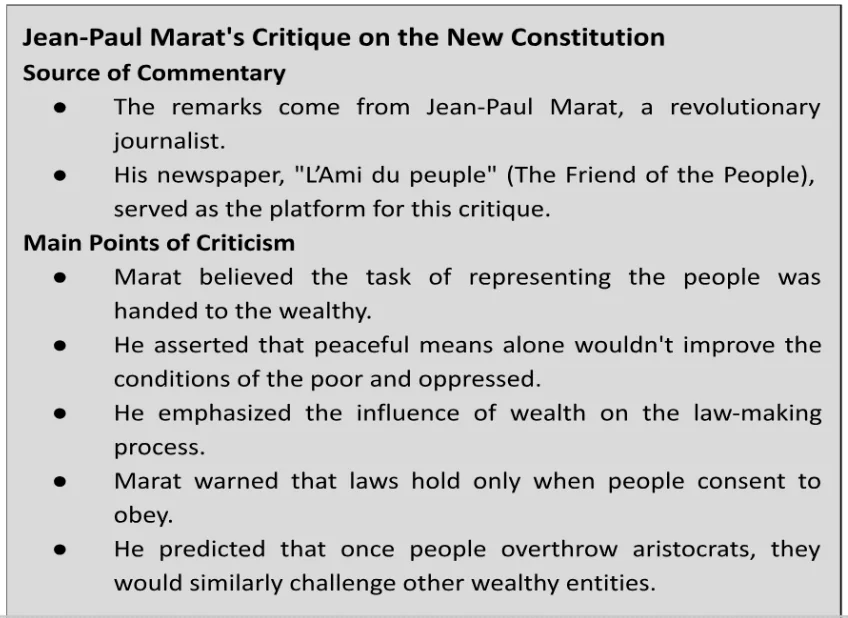
The French Revolution’s eruption, fueled by Enlightenment ideals, shattered the absolute monarchy. Years of turmoil culminated in a democratic constitution, replacing the old regime and permanently altering France’s political course.
| Related Articles | |
| Tax Reforms in India: Various committees | Citizenship: Balancing Rights, Responsibilities, and Migration Challenges Explored |
| Role of Legislature | Impact of French Revolution On India |
<div class="new-fform">
</div>